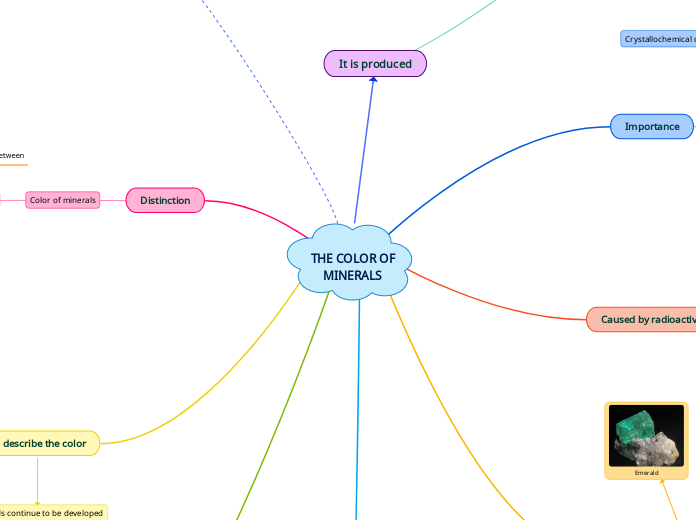jonka Stefanny healder 3 vuotta sitten
378
THE COLOR OF MINERALS
The color of minerals is a crucial factor in their identification, influenced by various genetic and crystallochemical characteristics. Minerals exhibit distinct colors and shades, such as tin white, copper red, and steel gray, often compared to familiar objects or substances like blood red, green apple, and indigo blue.









